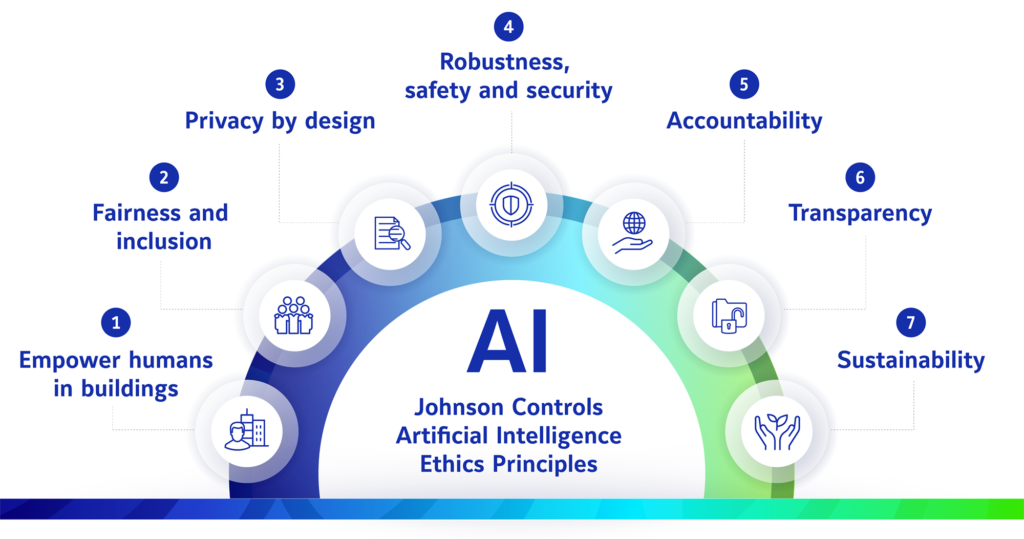
Artificial Intelligence (AI) has permeated every facet of our lives, from smart home devices to complex decision-making algorithms. As this technological juggernaut continues to evolve, so does the conversation around its ethical implications. In this article, we’ll delve into the intricate realm of AI ethics, exploring its nuances, challenges, and the imperative need for a harmonious balance between innovation and ethical considerations.
Unraveling the Tapestry of AI Ethics
In the ever-expanding universe of AI ethical considerations serve as the guiding compass. Understanding the ethical tapestry woven into the fabric of artificial intelligence requires a nuanced approach. It’s not merely about the algorithms and codes but the very essence of how AI impacts individuals, societies, and our collective future.
The Essence of Ethical AI
Ethical AI, at its core, is about ensuring that artificial intelligence systems operate with fairness, transparency, and accountability. The ethical framework of AI encompasses the responsible use of technology, safeguarding against biases, and prioritizing the well-being of humanity.
The Conundrum of Bias in AI Algorithms
One of the paramount challenges in the AI landscape is the pervasive issue of bias in algorithms. These biases, often unintentional, can result in discriminatory outcomes. Whether it’s in hiring processes or criminal justice systems, the question of bias raises concerns about fairness and social justice.
Decoding Algorithmic Bias
Algorithmic bias stems from the data used to train AI models. If historical data reflects societal biases, the AI system can inadvertently perpetuate and amplify these biases. Addressing this conundrum involves not only refining algorithms but also scrutinizing the datasets for inherent biases.
Transparency: The Cornerstone of Ethical AI
In the pursuit of ethical AI, transparency emerges as a non-negotiable cornerstone. Users, stakeholders, and the public should have a clear understanding of how AI systems function, make decisions, and impact their lives.
The Black Box Syndrome
AI algorithms are often perceived as ‘black boxes,’ inscrutable and mysterious. To cultivate trust, there is a growing demand for transparency in AI systems. Developers must lift the veil on the decision-making processes, enabling users to comprehend and challenge outcomes.
Navigating the Regulatory Landscape
As the ethical dimensions of AI become more pronounced, regulatory frameworks are emerging to provide guidelines for developers and organizations. The delicate balance between fostering innovation and safeguarding against ethical breaches is a tightrope walk that policymakers must undertake.
Global Perspectives on AI Ethics
Different regions grapple with AI ethics through diverse lenses. While some countries emphasize individual privacy, others focus on preventing the concentration of power. A global dialogue is crucial to create a cohesive ethical framework that transcends borders.
The Human Touch in AI Development
In the race for technological supremacy, the human touch must not be eclipsed. Ethical AI development involves incorporating human values, empathy, and a profound understanding of societal impacts into the coding process.
Ethical Considerations in AI Research
Researchers play a pivotal role in shaping the ethical landscape of AI. From the initial stages of ideation to the deployment of AI systems, ethical considerations should be embedded in every step. Research ethics committees are becoming integral to ensuring responsible innovation.
Addressing the Ethical Dilemmas in Autonomous Systems
As AI evolves towards autonomy, ethical dilemmas become more intricate. From self-driving cars to autonomous decision-making, the ethical considerations surrounding machines making choices independent of human intervention raise profound questions.
The Trolley Problem in AI
The famous ethical thought experiment, the Trolley Problem, finds a new dimension in AI. As machines grapple with real-time decisions, the need for a predefined ethical framework becomes imperative to navigate the complexities of moral dilemmas.
AI and Job Displacement: A Moral Quandary
The rapid integration of AI in the workforce raises concerns about job displacement. The ethical responsibility lies in mitigating the impact on employment while harnessing AI’s potential for economic growth.
Reskilling and Upskilling Initiatives
To address the Ai ethical concerns surrounding job displacement, proactive measures such as reskilling and upskilling programs are imperative. Empowering the workforce with the skills needed in the AI-driven future ensures a more ethical transition.
Balancing Act: Innovation vs. Ethical Constraints
In the dynamic landscape of AI, the quest for innovation sometimes clashes with ethical considerations. Striking a balance between pushing the boundaries of technological advancement and ensuring ethical safeguards is a delicate yet indispensable endeavor.
The Ethical Responsibility of Tech Giants
Tech giants wield immense influence in shaping the trajectory of AI development. Their ethical responsibility extends beyond profits to actively contribute to a sustainable, inclusive, and ethically sound AI ecosystem.
AI in Healthcare: Nurturing Ethical Practices
In the realm of healthcare, AI presents unprecedented opportunities but also ethical challenges. From patient privacy to the accuracy of diagnostic algorithms, ensuring ethical practices is paramount.
Patient-Centric AI Solutions
The ethical dimension in AI healthcare revolves around prioritizing patient-centric solutions. Respecting privacy, ensuring informed consent, and maintaining the human touch in patient care are pivotal considerations.
The Future of AI Ethics: A Collective Responsibility
As we stand at the crossroads of AI evolution, the future of AI ethics hinges on a collective responsibility. It requires collaboration among technologists, policymakers, ethicists, and the general public to shape a future where AI aligns with human values and societal well-being.
Educating the Next Generation of AI Ethicists
Institutions and educational programs play a crucial role in nurturing a new generation of AI ethicists. By integrating ethical considerations into AI curricula, we pave the way for a more conscientious approach to technology.
Conclusion: Ethical AI as a Guiding Light
In the labyrinth of AI development, ethical considerations must illuminate the path forward. The evolution of AI should not only be synonymous with technological prowess but also with a deep commitment to ethical principles. As we navigate the complex terrain of AI ethics, the key lies in fostering innovation while safeguarding the values that define our humanity. The future of AI is not just technological; it’s profoundly ethical, and the choices we make today will shape the contours of tomorrow’s intelligent landscape.